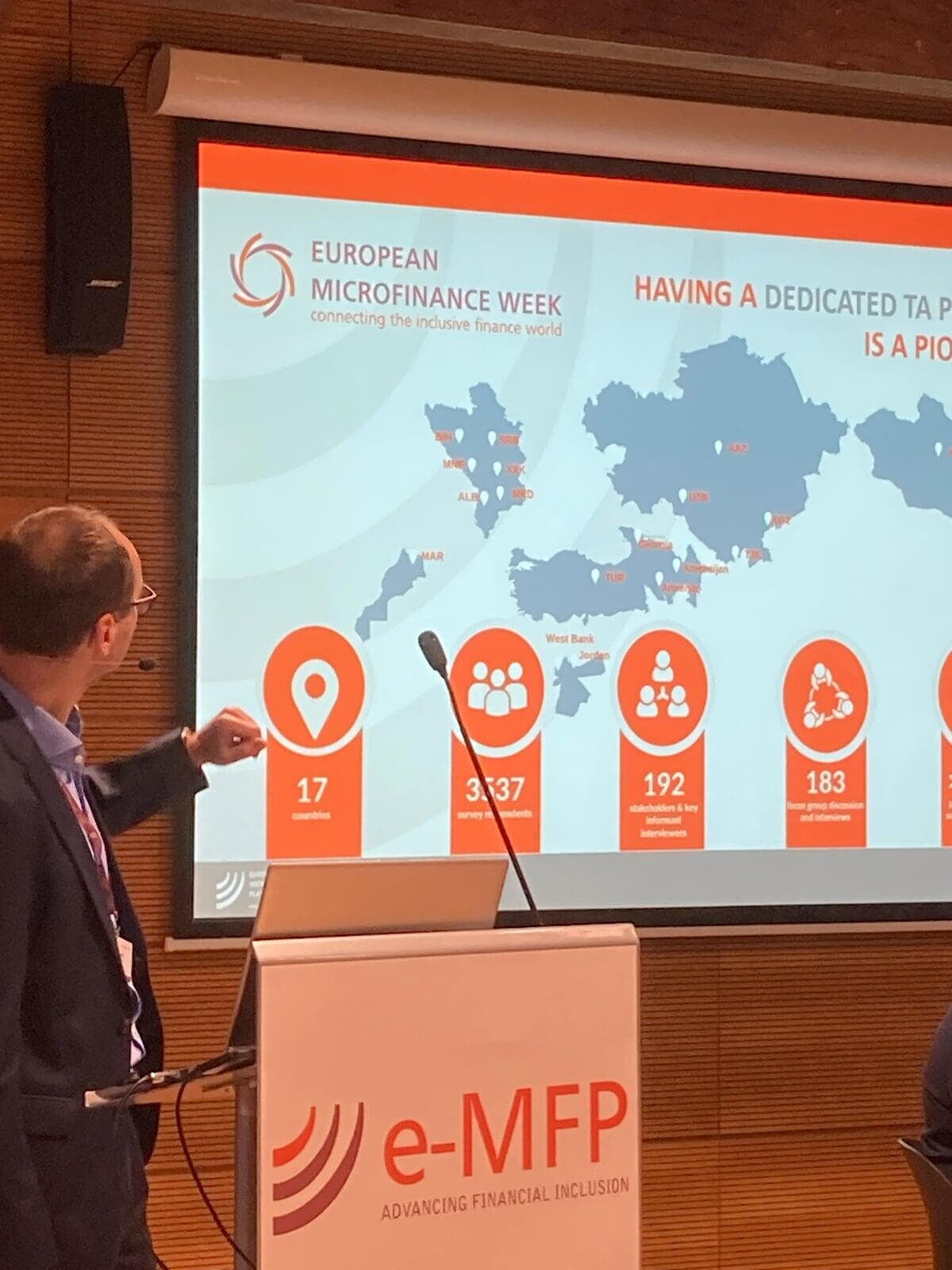
For many years, ADA has supported financial services providers (FSPs) around the world in expanding their services to youth. Through market research and testing, the NGO has found various financial and non-financial services that help advance the prospects of younger clients. Examples include combined savings and loan accounts, accounting tools with related coaching, and extended revenue-based funding programs (whereby the borrower repays the loan with a set percentage of profits over three years, versus the standard one year).
While many youth are starting new enterprises, an often overlooked segment of potential customers is young people taking over their family business. This segment is especially relevant in Eastern Europe and Central Asia, where many entrepreneurs launched businesses as regional economies to liberalize in the 1990s. Today, many of those entrepreneurs are moving into retirement. Banks, however, often are wary of the risks involved with the transfer of the business to the next generation. The new owner generally has less experience and may not have training in accounting and other business skills.
To address issues such as these, the European Bank for Reconstruction and Development (EBRD) launched a program called Youth in Business in 2022. This program includes funding for three to five years, credit enhancements, and technical assistance for both lenders and borrowers. The credit enhancement includes both first-loss risk and results-based bonuses for the FSP. Under the program thus far, EBRD has disbursed EUR 175 million to 23 FSPs in 13 countries, training 1,600 people and disbursing loans to 6,300 young entrepreneurs.
The ProCredit Group is a new partner of Youth in Business, piloting the effort in Macedonia with an eye toward future expansion to other countries ProCredit serves. The institution is offering youth a product with account fees and collateral requirements suspended, plus an incentive: six months of access to the music streaming service Spotify. Other non-financial services include access to co-working spaces, networking events, university linkages, and training on topics such as accounting and artificial intelligence. ProCredit also hosted a hackathon that connected 120 participants with 20 mentors.
Alter Modus, an FSP in Macedonia, has been partnering with Youth in Business for two years. One challenge has been digitalizing more of the institution’s services to meet customer demand. Meanwhile, the government does not allow certain options, such as electronic KYC or the e-signature of loan documents.
There are many reasons an FSP in a lower income country may choose to boost its youth services. One is to counter the “brain drain” of young people moving abroad to seek economic opportunities. Another is that younger people may be easier - and hence more profitable - to serve because they are digital-first customers. They also may be easier to attract, as they are less likely to have an ongoing relationship with another financial services provider.
The estimated funding gap for youth-led businesses is EUR 100 billion in Central Asia alone. Just 10 percent of this market demand has been satisfied. And the demand is even greater when considering personal finance needs such as for housing and education.
Despite the potential challenges of focusing on serving youth, it is a growing market that can’t be ignored. In fact, as Axel de Ville of ADA has said, “We must do it. It’s a must, and it’s possible!”
This content was delivered by presenters representing the above organizations at European Microfinance Week 2024, which is hosted by the European Microfinance Platform. The e-MFP has about 120 members, each of which supports the provision of financial services in lower income countries.

